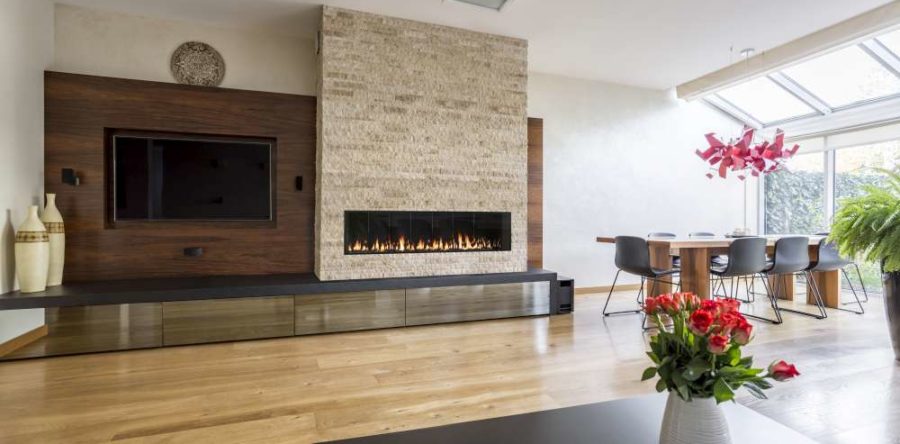Have you ever wondered, “Should I turn off the pilot light on my gas fireplace in the summertime?” That’s a good question because safety should always be a top consideration with fireplaces and gas appliances. The answer depends on what an individual wants to accomplish by turning the pilot light off or leaving it on. The functionality of a fireplace can potentially be affected by turning off the gas. Proper maintenance of a gas fireplace can help to ensure the safety and greater durability of your appliance.
Why Should I Turn Off My Gas Fireplace in Summer?
Here are good reasons to turn off your gas fireplace pilot in the summer:
- When your pilot light remains on, a small amount of heat is generated. The glass doors on your gas fireplace remain warm to the touch. When the weather is hot outside, it makes sense to eliminate any additional heat sources inside the home, especially if you are running air conditioning inside the house.
- When your pilot light is off, you save money and help to conserve energy. The constant use of gas to keep the pilot on is estimated to cost somewhere between $7 and $10 per month if you are using natural gas and possibly as much as $24 monthly if you are using propane.
- If a pilot light on a gas fireplace is left on for long periods of time without also turning on the fireplace’s main burner, a white sulfur-based film tends to develop on the inside of the glass. If it is not cleaned properly, it could become etched into the glass. A by-product of the burning pilot light, the sulfur can continue to build upon the glass. If you discover that this has occurred, be sure to look at the appliance manual, which may be available online, for instructions on properly cleaning the glass. If the cleaning isn’t done, a white haze on the glass could become permanent.
Why Should I Keep My Gas Fireplace On in Summer?
Despite the costs and other disadvantages, keeping the pilot light on also has some benefits:
- When nights are cool, you can still enjoy the convenience of your gas fireplace and quickly get the chill out of the air.
- When you turn the pilot light off, the pilot tubes of your fireplace still contain trace amounts of gas molecules. Mercaptan is a chemical gas companies add to the gas which gives it a pleasant odor. Spiders also like the smell, and they tend to build webs in the burner tubes and the pilot when the gas is turned off. It can be expensive to have the unit serviced, and the spider webs usually create the need to call a professional to get your fireplace operating again. What will happen is that when you go to use your fireplace, it won’t work if spider webs have clogged the system. The cost of repairs would probably be greater than the cost to keep your pilot light running.
With both pros and cons, keeping your gas fireplace pilot light on or off in summer is really up to you. Do not forget, however, that safety should always be a top consideration with fireplaces and gas appliances.












8 Responses